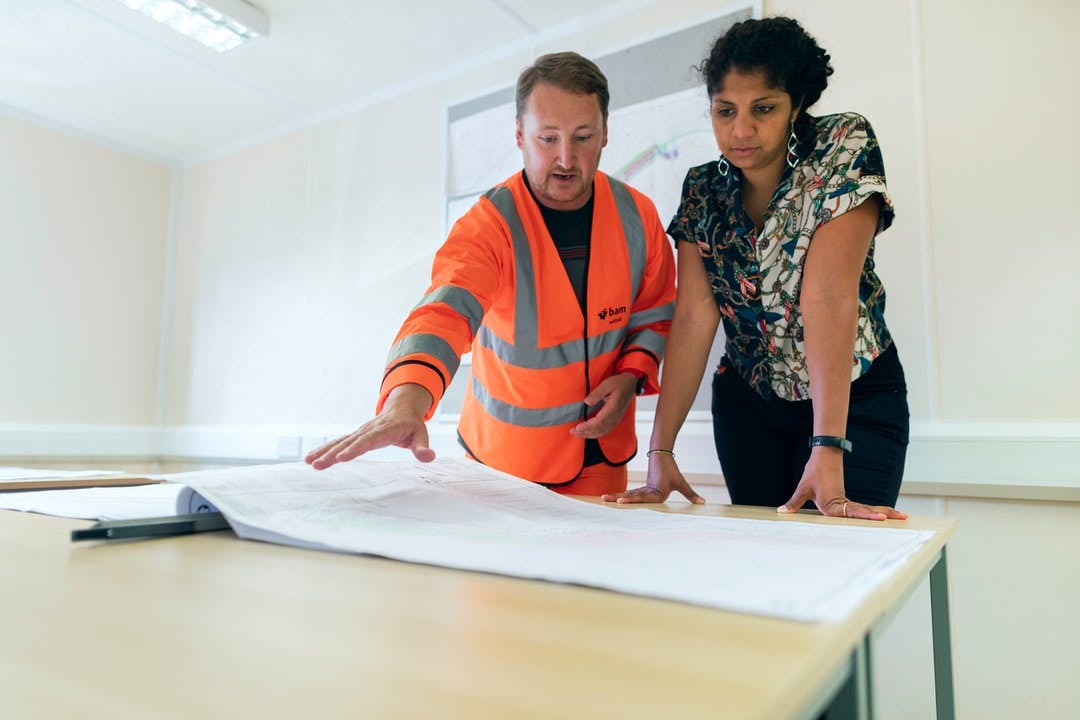Check your knowledge with a risk assessment quiz
Do you think you've got more risk assessment knowledge than most? Try our free quiz

Try our interactive quiz here
Love the format of our risk assessment quiz? Try deploying EdApp to your team for free.
Why take a risk assessment quiz
When it comes to safety in the workplace, one of the most important things to remember is that it’s not just about preventing accidents – it’s also about being prepared for them. That’s why risk assessment is such an important part of workplace safety. By identifying potential hazards and assessing the risks associated with them, you can put in place measures to prevent accidents from happening, and you can also develop a plan of action for what to do if an accident does occur. Risk assessment is an ongoing process, so it’s important to revisit it regularly to ensure that your safety plans are up-to-date. That’s why we’ve put together this quiz on risk assessment. With questions on everything from identifying hazards to developing a risk management plan, this quiz will help to ensure that your team is fully versed in the basics of risk assessment.

Deploy a risk assessment quiz to your team
With this risk assessment quiz, you can identify and close knowledge gaps so your workers can easily recall how to assess hazards and identify risks in the workplace. This knowledge is critical for protecting the safety and health of your workers, as it teaches them how to minimize or eliminate potential risks through preventive measures. Not only is this a risk to your workers, it’s also important to ensure that your organization is compliant with government regulations. With regular checks, your team will be more confident with how to handle equipment and situations that may be an increased risk of harm. Plus, you’ll also get access to your team’s results so you can understand individual workers’ knowledge gaps, as well as overall performance once the quiz is complete. For teams that require more regular refresher training, you’ll also have the option to deliver the risk assessment quiz to your workers in bite-sized chunks, at regular intervals. This allows your team to reinforce their knowledge at their own pace, making them more likely to recall and implement what they learned sooner than if they were to have completed a one-off training program.

Example questions from our risk assessment quiz
Question 1
How does fatigue reduce ones ability to work
Question 3
Fatigue poses health and safety risks
Question 5
Natural causes substance and workrelated factors may lead to fatigue at work
Question 7
Fatigue is the bodys signal that it needs a rest period or sleep
Question 9
Exercising relaxing and maintaining a healthy diet positively influences sleep
Question 11
Fatigue is commonly caused by irregular shifts and work hours that limits a worker from getting enough sleep
Question 13
Aside from Musculoskeletal disorders and reproductive problems what are the 2 other illnesses that you may develop from fatigue
Question 15
Fatigue is the bodys signal that it needs a rest period or sleep
Question 17
You decide to go skydiving What would be the greatest risk
Question 19
A risk framework requires
Question 21
Risk assessment should be conducted systematically iteratively and collaboratively drawing on the knowledge and views of stakeholders It should use the best available information supplemented by further enquiry as necessary
Question 23
Risk analysis may be influenced by any divergence of opinions biases perceptions of risk and judgements
Question 25
Close coordination between communication and consultation should facilitate
Question 27
Rank these likelihood descriptors from least to most likely
Question 29
Rank these risk levels from most important to least
Question 31
Residual risk should be documented and subjected to monitoring review and where appropriate further treatment
Question 33
Decisions concerning the creation retention and handling of documented information should consider
Question 35
For antifragile harm from errors should be less than the benefits
Question 37
Can we identify what is fragile
Question 39
Should we allow people to take risk but with a proportionate level of due diligence
Question 41
A risk assessment is NOT a onetime activity
Question 43
sbHow about nowsb
Question 2
Fatigue is commonly caused by irregular shifts and work hours that limits a worker from getting enough sleep
Question 4
Aside from Musculoskeletal disorders and reproductive problems what are the 2 other maladies that you may develop from fatigue
Question 6
Other than insomnia what are the 2 other disorders that may cause an employee to suffer from fatigue
Question 8
How can we protect our sleep
Question 10
How does fatigue reduce ones ability to work
Question 12
Fatigue causes safety risks in the workplace
Question 14
Natural causes substance and workrelated factors may lead to fatigue at work
Question 16
How can we protect our sleep
Question 18
Your instructor blacks out on a tandem jump Whats the greatest risk
Question 20
Risk assessment is the overall process of risk identification risk analysis and risk evaluation
Question 22
The purpose of risk identification is to
Question 24
Risk evaluation involves comparing the results of the risk analysis with the established risk criteria to determine where additional action is required
Question 26
A good example of an external stakeholder is
Question 28
Rank the consequence descriptors from lowest to highest
Question 30
Whats the greatest risk
Question 32
The results of monitoring and review should be incorporated throughout the organisations performance management measurement and reporting activities
Question 34
Anything that has more upside than downside from random events is antifragile the reverse is fragile
Question 36
Can we really measure risk
Question 38
Are we actually contributing to the fragility of society by trying to avoid risk
Question 40
A Risk Assessment is a process of identifying potential hazards and implementing control measures to manage risks
Question 42
sbDo you remember the three main steps of a Risk Assessmentsb h3 style fontsize07em Arrange the steps in the right order h3
